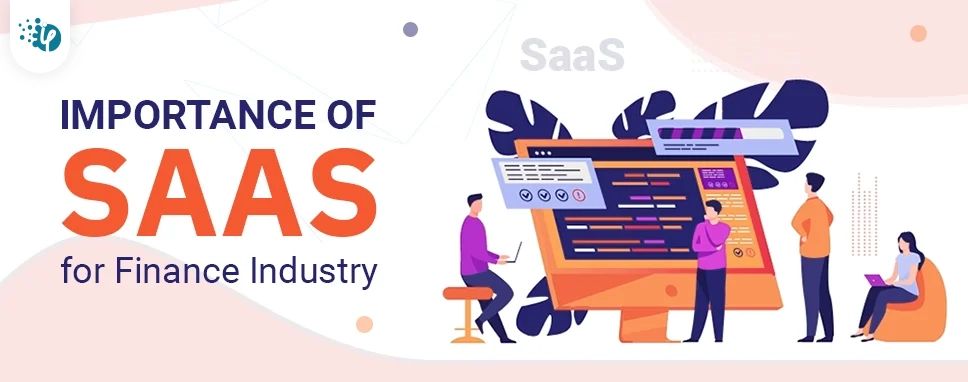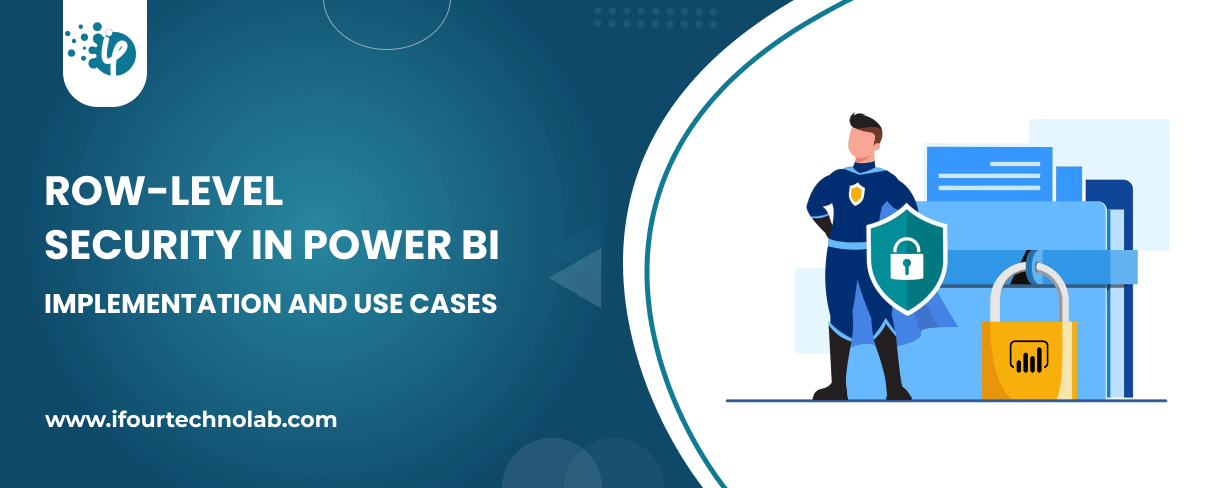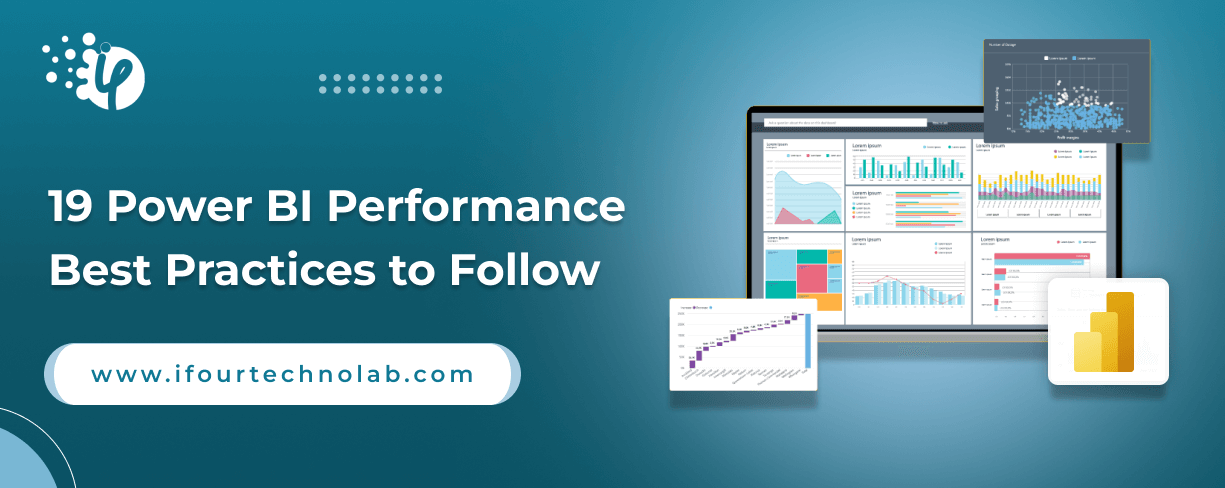Power BI Report Server: Key Features and Elements
Every CTO knows the struggle of managing complex reports. The inefficiency of scattered data, the constant juggling between reporting tools, the challenge of ensuring accurate KPIs...
Kapil Panchal - December 24, 2021
Listening is fun too.
Straighten your back and cherish with coffee - PLAY !

The expanding role of technologies and seamless digital transformation has dramatically reshaped the banking sector. As finances are the main base for any business, a sophisticated system is necessary to manage financial transactions with complete clarity and accuracy.
The growing popularity of digital payment systems created huge challenges for financial businesses in case of security and reliability. One such technology that benefits businesses with enhanced security and agility is SaaS, an ideal cloud-based solution.
With SaaS, users can seamlessly access various applications without having them installed on their devices. In addition, it provides an amazing user experience and eliminates arduous efforts for the user.
In this blog, we will take a detailed look at how SaaS services could help financial sectors.
The good thing with SaaS applications is that they do not need customer investment to improve. The needs of the financial market are constantly changing, and vendors need to keep up with them. Since there is zero customer investment needed, vendors can implement the improvements quickly . It is better compared to traditional software improvement, which is expensive and takes a lot of time.
SaaS applications use cloud-based infrastructure, which can access many servers. You can also adjust their functionality based on the demand. These systems are built with massive scalability because they serve a large number of customers, which is always the case with financial institutions.”
- Harriet Chan, Co-founder & marketing director at CocoFinder“When it comes to dealing with financial services like banking, it can often be very difficult for growing institutions to maintain an infrastructure that has the capacity for their needs all the time. And in most cases, upgrading on-site IT infrastructure often tends to require major capital investment. However, the benefit of SaaS technology is that it is highly scalable, meaning that its capacity grows with the business. Moreover, SaaS is particularly suited to improving customer service in financial services by helping them remain 'elastic' and expand their capacity to accommodate peak periods and shrink in the less peak times. This is more desirable than trying to use traditional on-premise systems that would usually require a costly overprovision. Additionally, the fast pace and requirements of financial services today tend to necessitate faster processing and deployment and the benefit of SaaS is that it can help to make IT systems more efficient, flexible, collaborative and significantly more adaptable in the process.”
- Eden Cheng, Co-Founder of PeopleFinderFree“SaaS applications are very scalable. SaaS-based systems are developed from the ground up to be incredibly scalable because the infrastructure and software must serve several clients at the same time. On the back end, a cloud-based architecture makes use of a large number of servers and instances that can be scaled up or down as needed to meet demand without re-architecting the application.”
- Janis Thies, CEO at SEOlutions“Financial service companies need to focus on SaaS infrastructure because security and scalability are built into the product. It is now much safer for these companies, as software updates can be installed without requiring human interaction. Financial services also need to focus on cloud computing as it will allow them to use their expertise better and provide a better experience for customers. The financial industry has turned its head towards competitive pressures from retail banks, gambling complexes, payment processors, etc. However, new offerings pose plenty of challenges for these established players that have historically been very profitable with little competition.”
- Daniel Veiga, Founder of Danny Veiga Marketing“Financial institutions must be able to effectively communicate with their customers, provide excellent service, enhance efficiency, and comply with stringent rules and regulations while saving money. This can be done quickly and easily using SaaS banking. For the financial services authority sector, there are numerous Welcome-kits, forms, statements, and dinning texts that are essential for businesses to interact with their clients. Security as a service tool includes consulting, training, education, support, and maintenance services. Clients can use these services to better understand their solutions and methods.”
- Bram Jansen, Chief Editor of vpnAlert“The solution category is likely to have a larger market share throughout the forecast period. Security as a service is being used by a large number of SMEs to safeguard their businesses from cyber threats across their cloud-based apps and platforms. This usage of cutting-edge security services has helped SaaS finance or financial service organizations catch up to their worldwide competitors and has shifted traditional banking procedures.”
- Neil Shaw, Founder & CEO of Lottery Sambad“As a strategic partner, the SaaS industry's expansion aids in the development of a complete cybersecurity plan for your financial company. They'd put in place a team of qualified security experts with plenty of expertise dealing with the most serious cyber threats to financial institutions. According to certain estimates, 28% of IT executives are already utilizing a SaaS financing management solution to gain insight into shadow IT, which is required to safeguard their data and systems.
SaaS product ideas provide a variety of financial services authority to help you with your financial security network measures, test your defences, and identify any holes in your current information security SaaS strategy. They can also protect your network, endpoints, cloud apps, and infrastructure with a full range of SOC-as-a-Service capabilities and services.”
- Lauren Cook-McKay, Director of Marketing & Content at Divorce Answers“Financial institutions must establish a thorough cybersecurity program due to a number of constraints. You may use SaaS security solutions to help you create or improve your app to meet this requirement. They evaluate the current maturity of your program, identify its strengths, and give a comprehensive analysis as well as a thorough action plan to remedy any deficiencies and meet your most pressing needs. The evaluations of SaaS security solutions are customized to offer an impartial assessment of your secure financial services program in comparison to the GLBA and other legislation's requirements. They can also assist your financial services software businesses on how to effectively address compliance and general security issues.
These resources offer a range of red-team and tabletop exercises for putting your cybersecurity program through its paces in real-world scenarios. These exercises can be used to evaluate your financial security services program's technical features on a functional level, or they can be used to test your company's security program at a higher, corporate decision-maker level.”
- Jennifer Carter, Crypto Analyst at Credit DonkeyCustomers want financial services companies to remember their preferences, engagement history, and habits so that they get personalised experiences. Companies must break through silos of consumer data and efficiently extract and exploit insights to satisfy customer needs in order to improve their competitive advantage.
Software as a Service (SaaS) is a subscription-based strategy for purchasing enterprise software without having to pay large upfront licence fees. This means that software becomes an operating expense (OPEX) rather than a capital expense (CAPEX) and, importantly, one that can be scaled up or down depending on business conditions.”
- Jennifer Carter, Crypto Analyst at Thor Capital Group“Software as a service or SaaS provides many cost-saving benefits to financial services firms. By outsourcing technology to the cloud, companies can eliminate the cost of upfront investments required for infrastructure setup. Because SaaS is hosted on the provider’s server, firms won’t need to build their own servers anymore. SaaS is also scalable, which means companies can adjust capacity according to their needs.”
- Chris Panteli, Co-founder of SaaSWins“The immediate value of SaaS applications is that they are much faster to implement and are typically much cheaper to maintain. Another reason why they are so attractive is that they eliminate the need for hardware maintenance and support.
The continuous evolution of software allows customers to continuously update their software with minimal investment. This is unlike traditional lifecycle management, where customers are forced to wait for new functionality or risk losing their investment.
The resiliency and availability of SaaS applications are extremely high. They can never fail. This is a huge advantage for any application, as it eliminates the risk of an end-user experiencing a complete system failure.”
- Allan Jeffrey, Managing Director at Ultra Decking“We see questions like this come up fairly regularly across various industries and the answers are often largely the same. The financial industry, more than most, needs to effectively, safely and conveniently connect with their customers while minimizing costs for all involved. Using an SaaS model is then extremely advantageous. Take safety, for example. With SaaS banking software, the core functions are all done through the browser and require little to no installation on the client side meaning fewer things can go wrong. Time to market is also greatly increased as you rarely have to deal with any issues related to legacy tech.”
- Alex Kus, CMO at Buddy“Financial sectors are nowadays increasingly embracing transformations, which allow them to again boost end-customer services. Hence, SaaS is an effective opportunity to do so. It enables financial services to fine-tune their proposition, such as a definite proposition for a selected customer segment.
They are expeditiously moving towards SaaS solutions because of its enhanced expectations of the customers and the leading probabilities offered by the cloud. It helps reduce costs, expedite time to market and scalable development. Future of financial services lies in cloud and digital banking is one of the biggest examples, where SaaS is used. Without it, life is unimaginable.”
- Stephen Curry, CEO of CocoSign“Financial services need to focus on SaaS because for an industry that deals with delicate data and strict compliance, there's no better solution than we've seen.
With the cloud, financial institutions can simply leverage common SaaS providers and quickly and smoothly build just-in-time solutions without big up-front investments in HRSPs. The next best option is to set up a homegrown IT department - but even banks with full IT departments say they plan to continue outsourcing their back office applications. For instance, Morgan Stanley has about 400 projects in development using outside providers such as Salesforce or Adobe systems.”
- Robin Brown, CEO at VIVIPINS“it'll save you money and time if the goal is to make your financial enterprise grow. Almost every company uses software these days. Software has changed their business practices and how they do things. It's possible that you're not using any SaaS products, but I doubt it. If your company doesn't use software and it can't afford to pay for a proprietary solution, then using SaaS products is the cheapest option available as well as the most efficient because those services are almost always designed for scale.”
- Kristin Stump, Marketing Manager at myenamelpins.comSaaS leverages the elasticity of the cloud to provide tremendous scalability that financial services who cater to a rapidly growing number of customers can scale quickly. This increase in scalability comes at a fraction of the cost required to scale manually i.e. purchasing additional servers and networking.
Financial needs change rapidly and financial services need to keep up with the changing landscape. Whether it's offering new, specialized services or scrapping old ones, making rapid changes to tech stacks without disrupting service delivery is tough with traditional in-house servers. SaaS providers usually maintain the latest updates of software and changes can be implemented while the service is still running.
For financial services with global operations, IT costs take up a sizable chunk of their budget. And the more customers they acquire, the more they have to spend in terms of server space, networking, and security. However, with SaaS leveraging the global network of major cloud service providers, financial services can slash their IT costs considerably.
For one, they could use a global network of CDNs to store location-specific content close to the target recipient, reducing latency. They could also leverage load balancers to route and spread traffic to specific VMs or other resources to increase efficiency.
Major cloud providers take up the responsibility of securing the cloud environment as a whole, although protection of the company’s VPC network within the cloud environment ultimately falls to the organization. This is still a much better option compared to the cost of security for the entire tech stack, especially on a global scale.
Also, financial services can implement granular security, identity management policies, and firewall rules across their entire network.
Financial services can leverage SaaS to implement more robust risk management and compliance policies in regard to client data and sensitive information. An example is using cloud redundancy to reduce the risk of information loss.
The ability to cache content in several regions, utilize automatic failovers, and leverage redundancies sets the stage for smooth user experience.
Ultimately, SaaS offers the financial service industry the tools it needs to keep up with the global shift that’s currently happening in the world of business.”
- Bowen Khong, Founder & Head of Research at ForexToStocksThe rising customer demands and sky-high expectations impelled financial sectors to find advanced solutions to simplify their operations. SaaS is one such solution that not only provides fine agility but also security. It enables users to access cloud-based apps without the need for installation on devices. In this blog, we have learned various expert opinions on how SaaS services can assist financial sectors and simplify their operations.

Every CTO knows the struggle of managing complex reports. The inefficiency of scattered data, the constant juggling between reporting tools, the challenge of ensuring accurate KPIs...

The very first reason why you should implement Row Level Security is to foster trust, a crucial element for any business's success. Next, it reduces data clutter and helps you load...

The performance of Power BI is significantly influenced by two essential factors: design consistency and the rapid loading of BI elements. This holds true whether you choose Tableau...